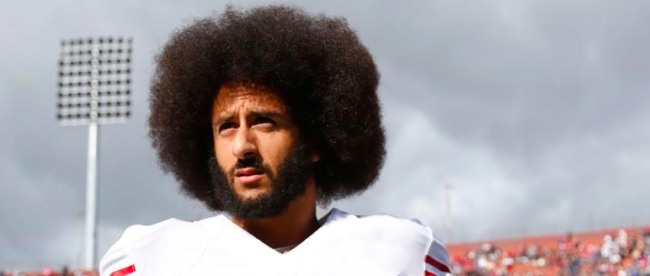Taking on the National Football League

On October 15, 2017, several news and media outlets reported that former San Francisco 49ers quarterback Colin Kaepernick would be filing a grievance against the National Football League. Kaepernick, following the requisite procedure, filed his grievance under the National Football League’s Collective Bargaining Agreement alleging collusion amongst the 32 owners of NFL teams. What started out as an individual practicing his right to protest, particularly to shed light on specific social injustices, has escalated rapidly into a national debate centered on players kneeling during the national anthem. As a result of his protest, and in combination with both the immense media coverage and fellow athletes who joined in protest, Colin Kaepernick remains unsigned a year later. In what is undoubtedly a monumental task taking on the NFL, Kaepernick still stands on the verge of making more history if an arbitrator finds the allegations are true.
Article XVII(a)(1) of the NFL collective bargaining agreement states that no NFL team or employee “shall enter into any agreement, express or implied, with the NFL or any other club, its employees or agents to restrict or limit individual club decision making as to . . . whether to negotiate or not to negotiate with any player.” Quite simply, NFL general managers, for example, cannot agree amongst each other to not sign a player. If Kaepernick’s claims are proven true, he could win double the compensatory damages from the league (that is, double his lost salary), as opposed to the treble damages awarded under the Sherman Antitrust Act. In order to prove collusion, Kaepernick needs to provide substantial evidence of a “forbidden agreement between NFL teams and/or the league,” and that this agreement proximately caused economic harm. However, Kaepernick’s burden to prove collusion beyond a preponderance of evidence is not as easily accomplished as it is said.
Proving collusion amongst NFL owners, general managers, or a cohort of both, must almost certainly come in the form of written communication. With this form of evidence practically necessary to a positive outcome, Kaepernick will certainly look to have an independent arbitrator compel NFL teams to turnover emails, texts, or any other form of written communication discussing collusion. The problem with this tailored discovery scheme is that NFL owners, general managers, and League Office officials do not appear foolish enough to speak about collusion through an easily obtainable document. If any collusion talks actually occurred, it would seem logical to assume that these conversations occurred in person or in any event, were not recorded in print.
Yes, Kaepernick’s road to obtaining a favorable verdict appears to be incredibly arduous. Even when putting aside the discovery issue regarding written documents, proving collusion seems almost insurmountable when comparing Kaepernick’s suit to a case such as Barry Bonds’s grievances in 2008, in which Bonds brought a collusion suit against Major League Baseball after he failed to sign with a team. Despite Bonds agreeing to play for the league minimum, every Major League Baseball team refused to sign him – and Bonds lost the suit! If Bonds, an outright superstar who broke Hank Aaron’s homerun record, could not win a collusion suit, the odds seem even less in Kaepernick’s favor given Kaepernick is not considered an NFL superstar.
Regardless of Kaepernick’s chances to win this suit, what seems to be the ultimate victory is the fact that these allegations are made against the NFL – a behemoth amongst sports leagues. More specifically, and put quite perfectly in an article by Paul Greene and Joshua Gordon, is the fact that this suit begins to shed light onto the “fundamental issue that motivated his protest initially – justice.” The importance of this suit, notwithstanding the outcome, is the fact that justice is a cornerstone value of our country and no one, not even the National Football League, can insulate oneself from its reach.
Suggested citation: James Redman, Taking on the National Football League, Cornell J.L. & Pub. Pol’y, The Issue Spotter, (Nov. 17, 2017), http://jlpp.org/blogzine/taking-on-the-national-football-league/.
